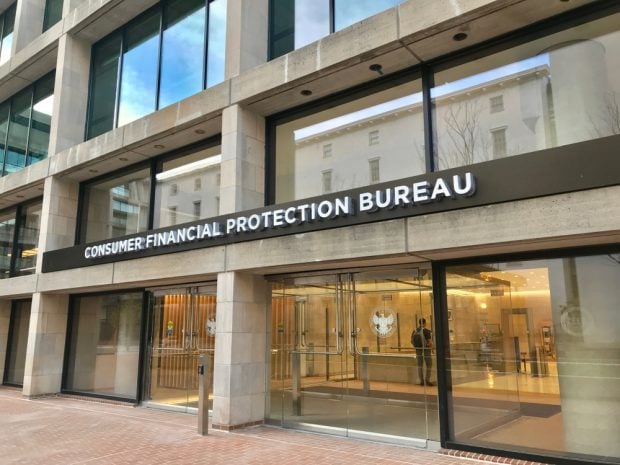 CFPB headquarters in Washington, D.C. (Source: Shutterstock)
CFPB headquarters in Washington, D.C. (Source: Shutterstock)
Chances are, you are among the millions of Americans on Saturday who engaged in the quadrennial ritual of watching a soccer game involving the United States Men's Team, in which the men lose, by a lot, and you scratch your head wondering why so many people like this sport so much to begin with.
For the record, I love the sport – but I've always been bothered by just how much power one referee is given over the outcome. One penalty kick is as good as three touchdowns in your average American football game. But at least this is just a game.
Recommended For You
This brings me to the issue over which I have grown increasingly concerned in recent months, and your credit union should as well. What exactly is an Unfair, Deceptive or Abusive Act and Practice? The answer to that question is becoming increasingly important to whether or not your credit union is complying with federal regulations. The CFPB, whose single director oversees not only every major federal consumer protection law, but the use and interpretation of UDAAP, is acting very much like a referee who is making up the rules as they go along – rather than enforcing the rules as everyone understands them. Let the chaos begin.
Prohibitions against deceptive practices have been around since at least 1914, when Congress empowered the Federal Trade Commission to take enforcement actions against companies that engaged in such activity. In fairness to the CFPB, it was always understood that the statute was as much an enforcement framework as a specific statutory mandate, and over the years, the courts have shown great deference to the FTC, and now the CFPB. Incidentally, for much of this history, banks and credit unions were not subject to the FTC's UDAAP oversight, but all this changed decisively when Congress gave the CFPB UDAAP powers under the Dodd Frank Act.
If UDAAP has been around so long, then why my recent angst? Because the CFPB is aggressively using this authority in order to encourage both state and federal regulators to get in on the act and interpreting the statute in a way which enhances its power to invalidate practices that are in compliance with federal law. Most notably, in May of this year, the CFPB sent out one of its first consumer protection circulars to remind both state and federal regulators, including of course, the NCUA, that they could use the UDAAP authority. Then, in late October, the CFPB issued another circular in which it opined that the assessment of an overdraft fee can constitute an unfair or deceptive practice even if the entity is complying with federal law. The circular is worth reading not only because it virtually eliminates Authorized Positive Settle Negative overdraft programs, but also because it does so in a way which grants itself even more authority to eliminate practices which it doesn't like – even when such practices comply with existing law. Generally speaking, for an act to be unfair under the statute, it must be one that is not reasonably avoidable by consumers. In its circular, the CFPB uses just a few sentences to announce:
"Though financial institutions may provide disclosures related to their transaction processing and overdraft assessment policies, these processes are extraordinarily complex, and evidence strongly suggests that, despite such disclosures, consumers face significant uncertainty about when transactions will be posted to their account and whether or not they will incur overdraft fees."
In other words, folks, all the good faith and hard work that I know credit unions have put into accurately describing their overdraft practices is for naught. The CFPB has determined that your members are just not savvy enough to track their balances or know when they might be overdrawing.
The bureau's determination contrasts with a consensus that has emerged among the courts that proper disclosures constitute a defense to these claims. Many of these rulings have come in cases alleging that overdraft practices violate state UDAAP laws. The CFPB's pronouncement is a greenlight to plaintiffs all across the country seeking to bring such claims and could potentially present difficulties to those institutions who have successfully fought off overdraft lawsuits that are under appeal. If history is any guide, divided government translates into more regulations as independent and executive branch agencies seek to get things done without congressional assistance.
In the short-term, here is some practical advice. If you are in charge of a growing credit union, seriously consider amending your account agreements to adopt arbitration clauses. These won't protect you from the scrutiny of your regulator, but if properly implemented, they will protect you from the class action lawsuits that are sure to be coming your way.
 Henry Meier
Henry Meier Henry Meier is the former General Counsel of the New York Credit Union Association, where he authored the popular New York State of Mind blog. He now provides legal advice to credit unions on a broad range of legal, regulatory and legislative issues. He can be reached at (518) 223-5126 or via email at [email protected].
© Touchpoint Markets, All Rights Reserved. Request academic re-use from www.copyright.com. All other uses, submit a request to [email protected]. For more inforrmation visit Asset & Logo Licensing.






